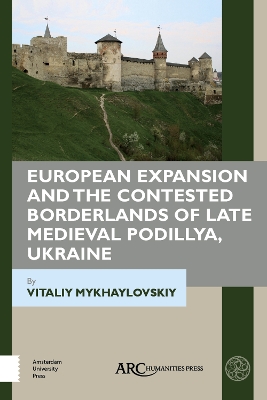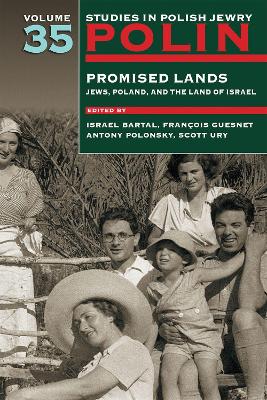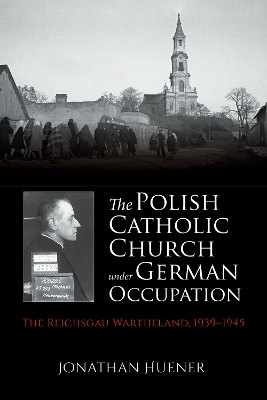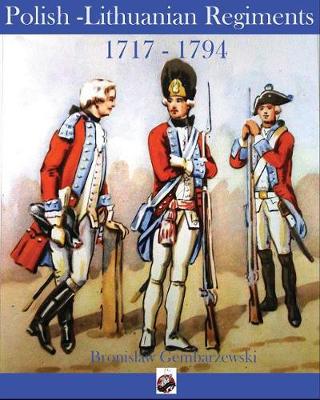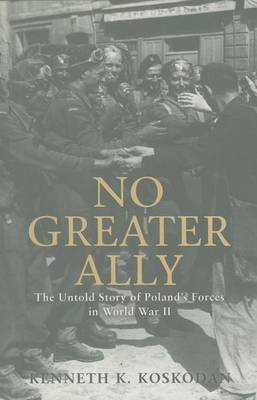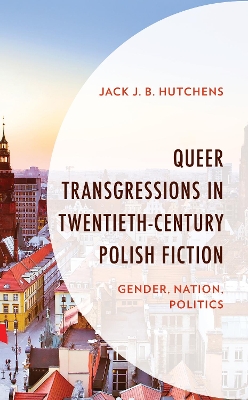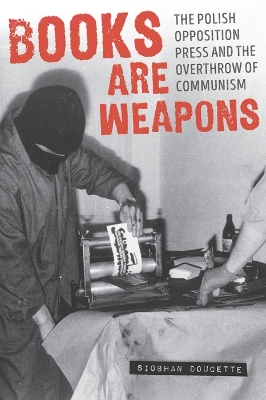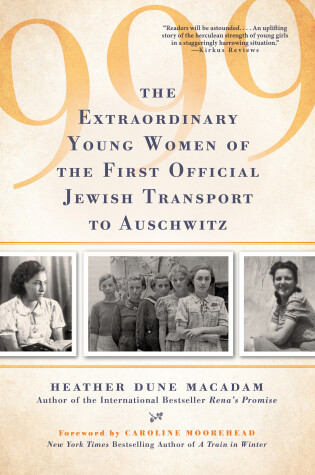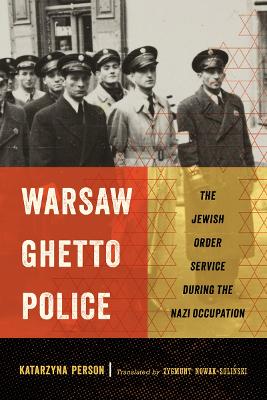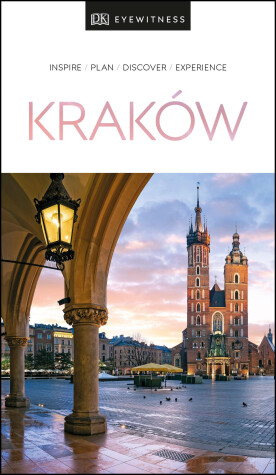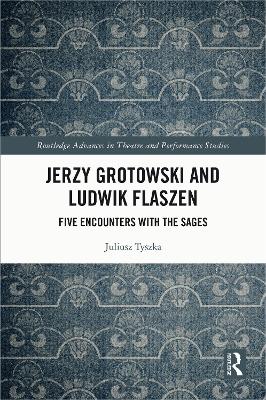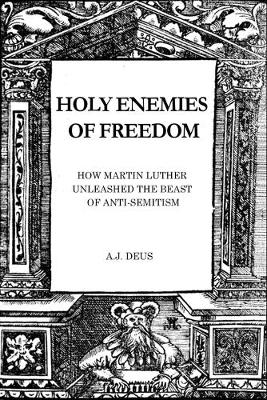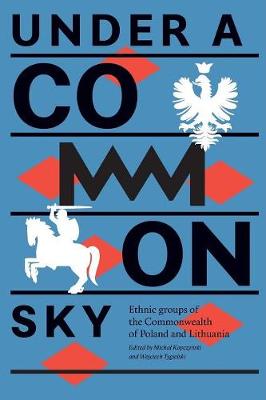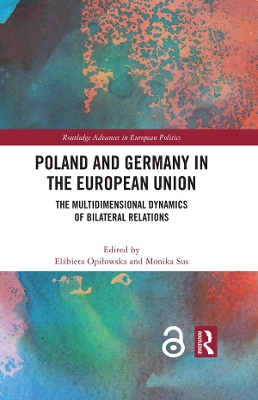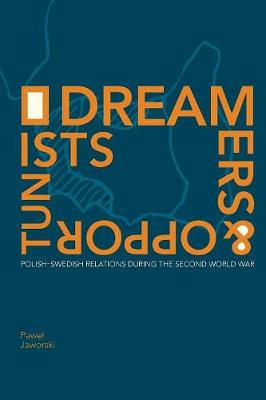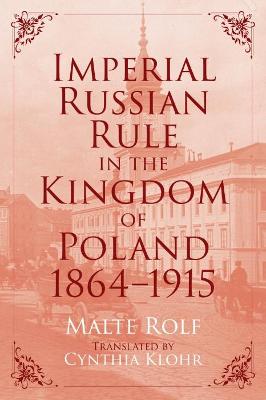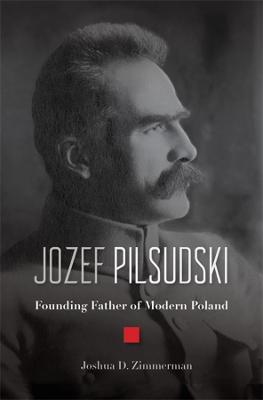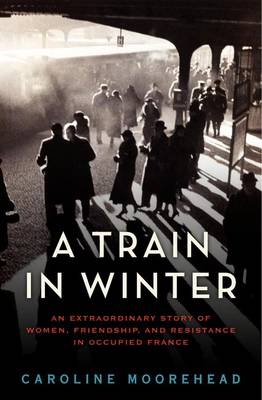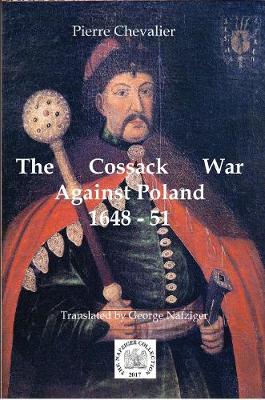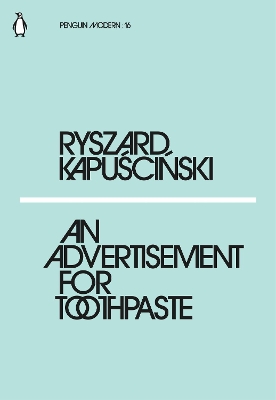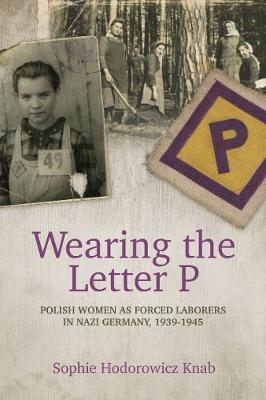Polin: Studies in Polish Jewry Volume 35 (Polin: Studies in Polish Jewry, #35)
An in-depth and multifaceted investigation of how Polish Jews, Polish Zionism, and Polish culture influenced Israel's cultural and political development, as well as of how the Zionist project influenced Jewish life in Poland. From its inception as a political movement, Zionism had as its main goal the creation of a 'New Jew' who could contribute to building a Jewish state, preferably in the historic homeland of the Jewish people, where Jews would free themselves from the negative characteristics...
When Nazi Germany invaded Poland in 1939, it aimed to destroy Polish national consciousness. As a symbol of Polish national identity and the religious faith of approximately two-thirds of Poland's population, the Roman Catholic Church was an obvious target of the Nazi regime's policies of ethnic, racial, and cultural Germanization. Jonathan Huener reveals in The Polish Catholic Church under German Occupation that the persecution of the church was most severe in the Reichsgau Wartheland, a regi...
There is a chapter of World War II history that remains largely untold; the story of the fourth largest allied military of the war, the only nation to have fought in the battles of Leningrad, Arnhem, Tobruk and Normandy. In a cruel twist of history the monumental struggles of an entire nation have been forgotten, and even intentionally obscured. This book redresses the balance, giving a comprehensive overview of Poland's participation in World War II. Following their valiant but doomed defence o...
Queer Transgressions in Twentieth-Century Polish Fiction
by Jack J. B. Hutchens
Throughout the twentieth century in Poland various ideologies attempted to keep queer voices silent—whether those ideologies were fascist, communist, Catholic, or neo-liberal. Despite these pressures, there existed a vibrant, transgressive trend within Polish literature that subverted such silencing. This book provides in-depth textual analyses of several of those texts, covering nearly every decade of the last century, and includes authors such as Witold Gombrowicz, Marian Pankowski, and Olga T...
Books Are Weapons (Pitt Series in Russian and East European Studies)
by Siobahn Doucette
Much attention has been given to the role of intellectual dissidents, labor, and religion in the historic overthrow of communism in Poland during the 1980s. Books Are Weapons presents the first English-language study of that which connected them - the press. Siobhan Doucette provides a comprehensive examination of the Polish opposition's independent, often underground, press and its crucial role in the events leading to the historic Round Table and popular elections of 1989. While other studi...
A PEN America Literary Award Finalist A Goodreads Choice Awards Nominee An Amazon Best of the Year Selection The untold story of some of WW2’s most hidden figures and the heartbreaking tragedy that unites them all. Readers of Born Survivors and A Train Near Magdeburg will devour the tragic tale of the first 999 women in Auschwitz concentration camp. This is the hauntingly resonant true story that everyone should know. On March 25, 1942, nearly a thousand young, unmarried Jewish women, man...
In Warsaw Ghetto Police, Katarzyna Person shines a spotlight on the lawyers, engineers, young yeshiva graduates, and sons of connected businessmen who, in the autumn of 1940, joined the newly formed Jewish Order Service. Person tracks the everyday life of policemen as their involvement with the horrors of ghetto life gradually increased. Facing and engaging with brutality, corruption, and the degradation and humiliation of their own people, these policemen found it virtually impossible to exerc...
A regal city frozen in time.Whether you want to enjoy a coffee in Krakow's iconic market square, explore the cavernous Wieliczka salt mine or simply indulge on moreish Pierogi, your DK Eyewitness travel guide makes sure you experience all that Krakow has to offer.Winding medieval streets, monumental palaces, soaring gothic spires and an imposing castle overlooking the city - Krakow is a historic gem. This stunning array of medieval architecture belies the city's cosmopolitan vibrancy; Krakow ab...
Jerzy Grotowski and Ludwik Flaszen (Routledge Advances in Theatre & Performance Studies)
by Juliusz Tyszka
The book contains three accounts of five public speeches and conversations with the public of two outstanding figures of theatre and performance, Jerzy Grotowski and Ludwik Flaszen, from 1993 to 1997. Their speeches concern their output and their current research. The content of Ludwik Flaszen's speech is very closely related to the output of Jerzy Grotowski. The accounts are written on the base of the author's detailed notes. The main subject of these narratives is their author, who quotes th...
Poland and Germany in the European Union (Routledge Advances in European Politics)
This book explores the political and social dynamics of the bilateral relations between Germany and Poland at the national and subnational levels, taking into account the supranational dynamics, across such different policy areas as trade, foreign and security policy, energy, fiscal issues, health and social policy, migration and local governance. By studying the impact of the three explanatory categories - the historical legacy, interdependence and asymmetry - on the bilateral relationship, th...
Dreamers and Opportunists (S dert rn Academic Studies, #73)
by Pawel Jaworski
Do you know why December 24th is the most important day of the year on the Polish calendar? Or why many Poles celebrate their nameday rather than their birthday? Why are newlyweds always welcomed with bread and salt? If you want to embrace your Polish heritage, this how-to guide will serve as a mini-encyclopedia of Polish traditions. You'll find the history of numerous holidays and customs together with step-by-step instructions on how to incorporate them into your everyday life. Celebrating Y...
Feliks Koneczny and Civilizational Fundamentalism in Poland
by Andrew Kier Wise
Imperial Russian Rule in the Kingdom of Poland, 1864-1915 (Russian and East European Studies)
by Malte Rolf
After crushing the Polish Uprising in 1863-64, Russia established a new system of administration and control. Imperial Russian Rule in the Kingdom of Poland, 1864-1915 investigates in detail the imperial bureaucracy's highly variable relationship with Polish society over the next half century. It portrays the personnel and policies of Russian domination and describes the numerous conflicts between the Tsarist officialdom and the local population. Presenting case studies of both modes of conflict...
The story of the enigmatic Jozef Pilsudski, the founding father of modern Poland: a brilliant military leader and high-minded statesman who betrayed his own democratic vision by seizing power in a military coup.In the story of modern Poland, no one stands taller than Jozef Pilsudski. From the age of sixteen he devoted his life to reestablishing the Polish state that had ceased to exist in 1795. Ahead of World War I, he created a clandestine military corps to fight Russia, which held most Polish...
A Train in Winter (P.S.) (Resistance Trilogy, #1)
by Caroline Moorehead
In January 1943, the Gestapo hunted down 230 women of the French Resistance and sent them to Auschwitz. This is their story, told in full for the first time--a searing and unforgettable chronicle of terror, courage, defiance, survival, and the power of friendship to transcend evil that is an essential addition to the history of World War II.
An Advertisement for Toothpaste (Penguin Modern)
by Ryszard Kapuscinski
'Like rotting stakes in a forest clearing' The great journalist of conflict in the Third World finds an even stranger and more exotic society in his own home of post-War PolandPenguin Modern: fifty new books celebrating the pioneering spirit of the iconic Penguin Modern Classics series, with each one offering a concentrated hit of its contemporary, international flavour. Here are authors ranging from Kathy Acker to James Baldwin, Truman Capote to Stanislaw Lem and George Orwell to Shirley Jackso...
Wearing the Letter P: Polish Women as Forced Laborers in Nazi Germany, 1939-1945
by Sophie Hodorowicz Knab
Sophie Knab's parents were Polish forced labourers in Germany during World War II. For years her mother was unable to discuss or answer questions about this period of her life. Compelled to learn more about her mothers experience and that of other Polish women, Knab began a personal and emotional quest. Over the course of 14 years, she conducted extensive research of post-war trial testimonies housed in archives in the U.S., London, and in Warsaw to piece together facts and individual stories fr...
